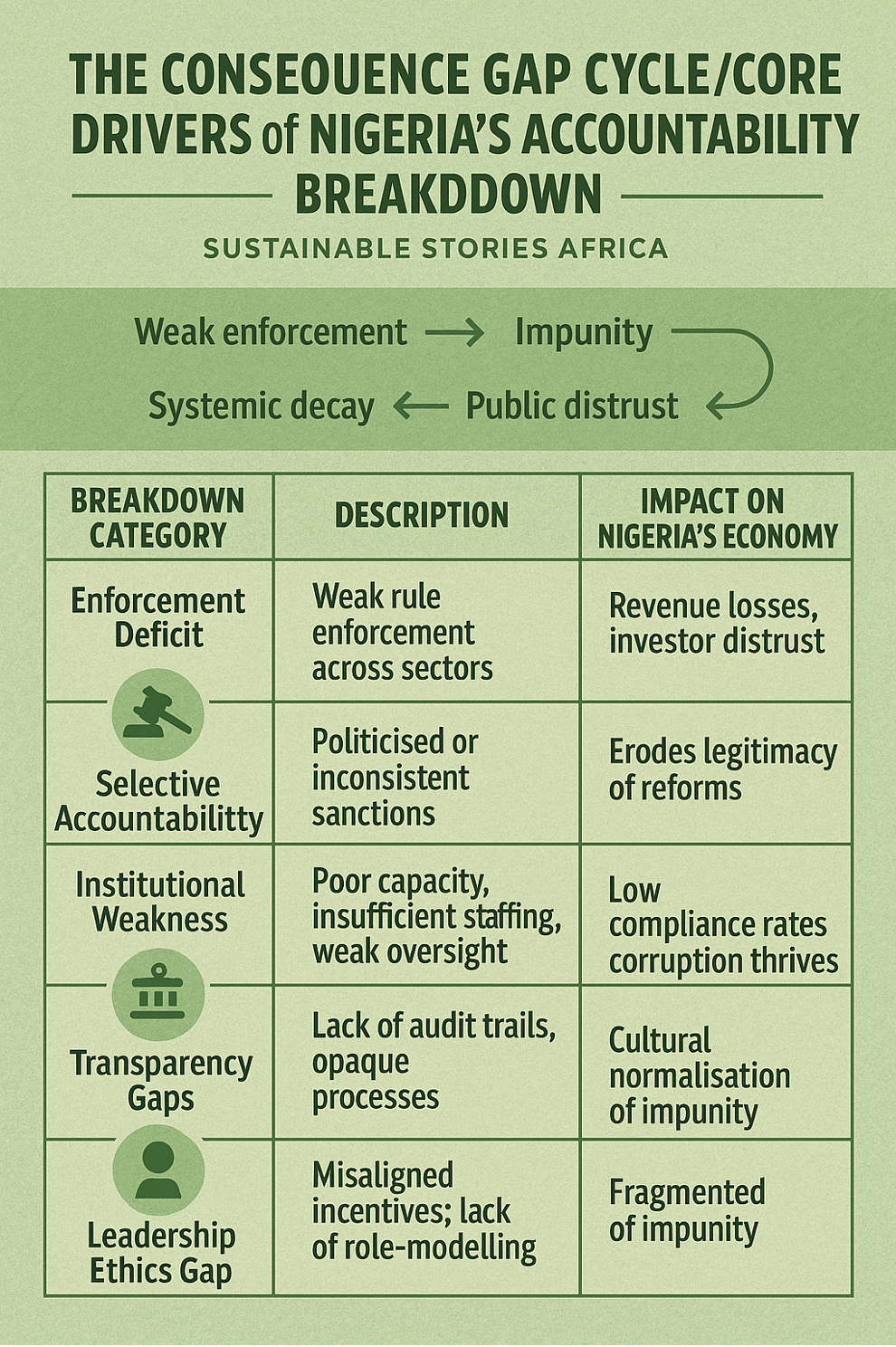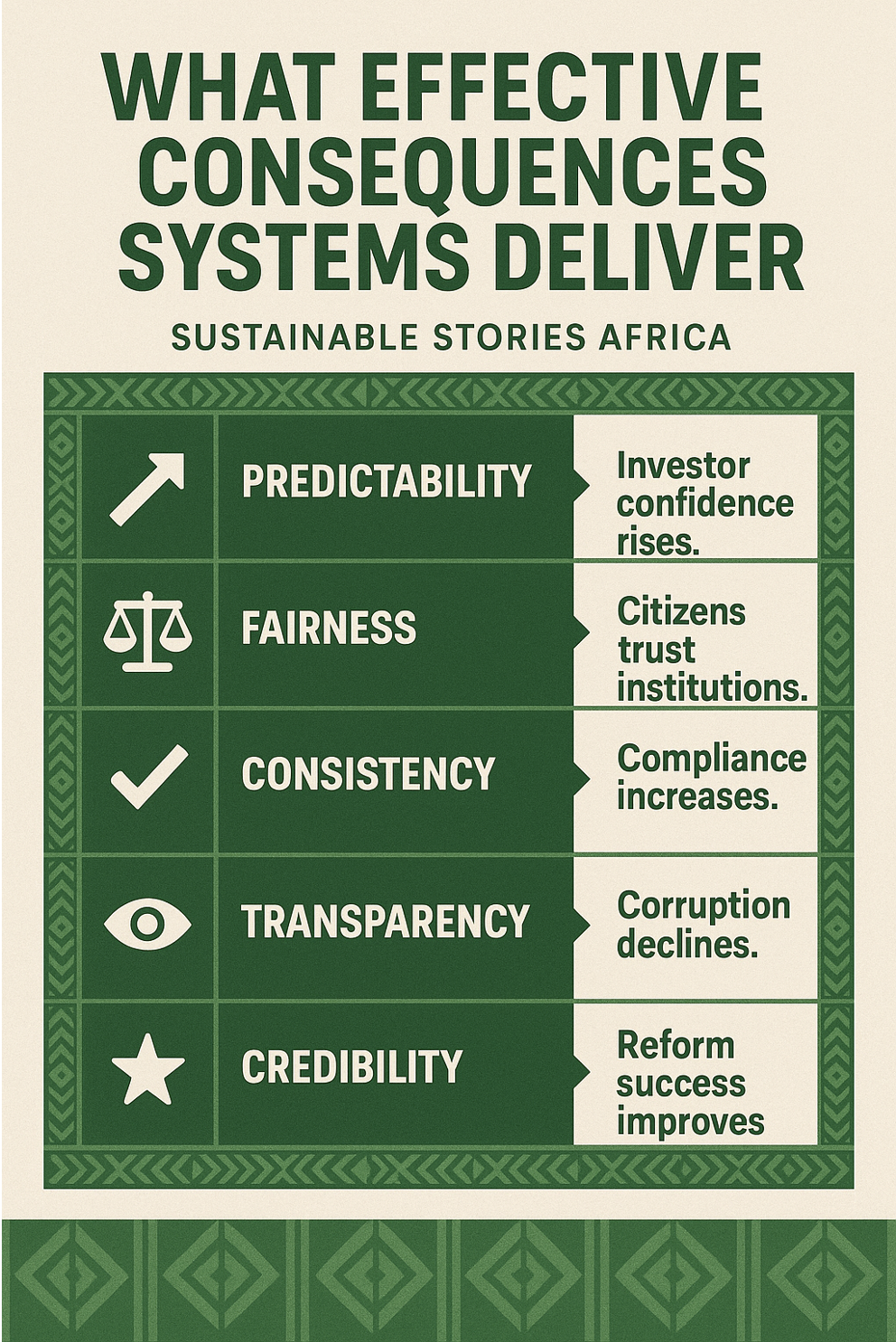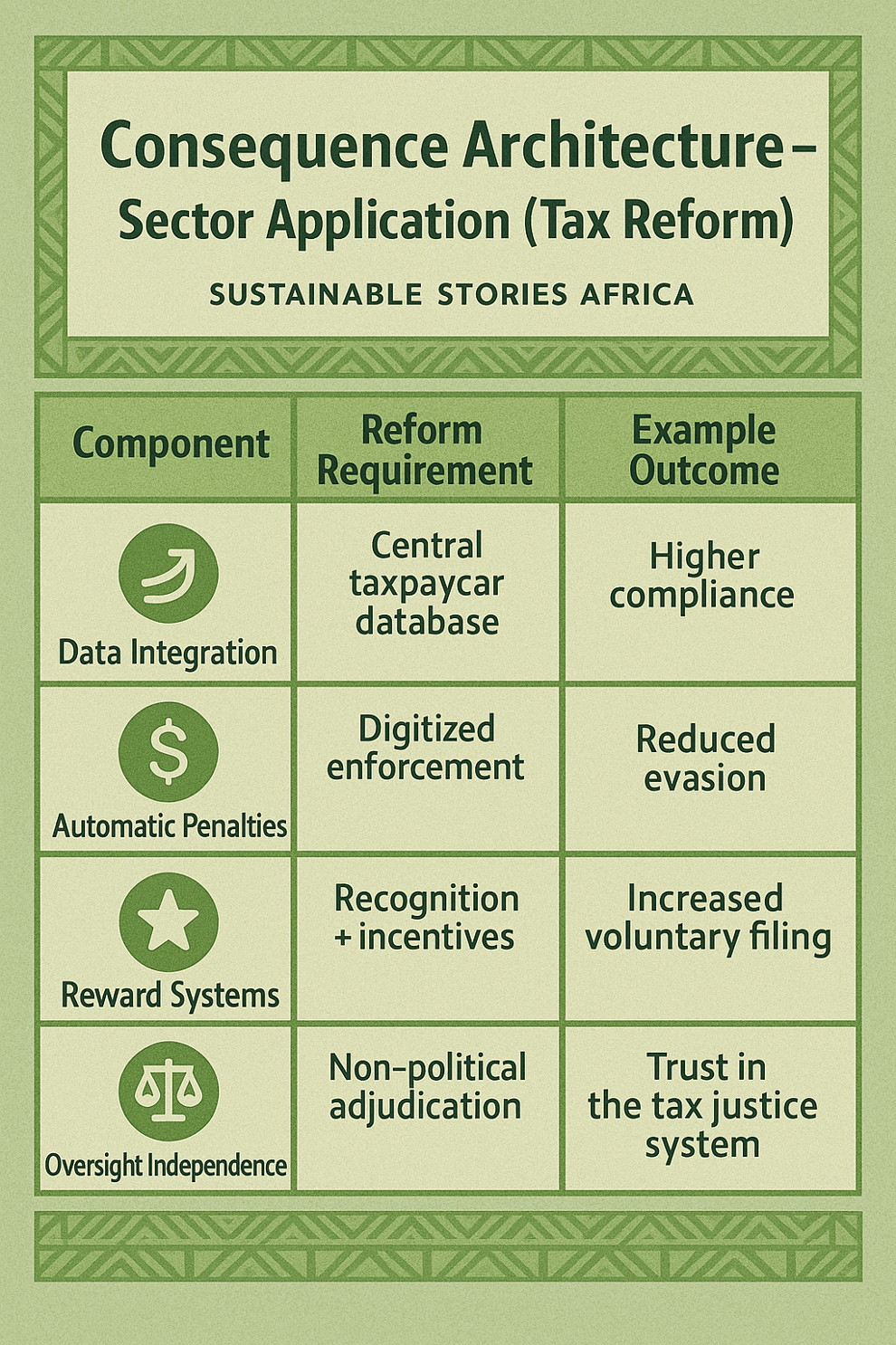Nigeria's reform agenda has long struggled with a structural weakness: the absence of consequence management. At the 55th ICAN AAC Conference, Dr Olumuyiwa Adebayo argued that Nigeria's economic reforms repeatedly fail not because of poor ideas, but because actions carry no predictable outcomes.
This feature unpacks the data, insights, and frameworks he presented, revealing how consequence management could become the turning point for trust, accountability, and sustainable national transformation.
Accountability Begins Where Excuses End
Nigeria's reform cycles consistently promise economic renewal, governance restructuring, and institutional strengthening. However, across administrations, sectors, and political climates, one pattern persists: reforms collapse at the implementation stage.
At the centre of this failure is what Dr Olumuyiwa Adebayo calls "the missing link", consequence management, the disciplined system that holds institutions, leaders, and citizens accountable for actions and outcomes.
In his presentation at the 55th ICAN AAC Virtual Conference, themed Building Trust, Resilience and Accountability in Nigeria's Digital and Sustainable Economic Transformation, Dr Adebayo warned that Nigeria suffers not from a scarcity of reform blueprints, but from an enforcement deficit that allows impunity to flourish.
Without predictable rewards and sanctions, he argued, no economic reform – tax, digital, fiscal or institutional – can achieve its intended impact.
Our insights and data feature dives into those insights, applying the Sustainable Stories Africa AIDAP framework to examine the anatomy of Nigeria's accountability gaps, the pillars of consequence-based governance, and the institutional architecture required to reset the nation's reform trajectory.
Nigeria's Enforcement Deficit – The Hidden Cost of Consequence-Free Governance
For decades, Nigeria's economic reform narrative has been defined not by failed policy design, but by the failure to enforce. According to Dr Adebayo, the core national risk is simple: when actions have no consequences, systems decay, and public trust collapses with them.
In his assessment, Nigeria operates within a culture of predictable impunity, where leadership misconduct, fiscal leakages, tax evasion, policy non-compliance, and procurement abuse rarely attract swift, proportionate, or transparent penalties.
The Consequence Gap Cycle
Weak enforcement → Impunity → Systemic decay → Public distrust → Reform failure → Repeat
Core Drivers of Nigeria's Accountability Breakdown
| Breakdown Category | Description | Impact on Nigeria's Economy |
|---|---|---|
| Enforcement Deficit | Weak rule enforcement across sectors | Revenue losses, investor distrust |
| Selective Accountability | Politicised or inconsistent sanctions | Erodes legitimacy of reforms |
| Institutional Weakness | Poor capacity, insufficient staffing, weak oversight | Low compliance rates |
| Transparency Gaps | Lack of audit trails, opaque processes | Corruption thrives |
| Leadership Ethics Gap | Misaligned incentives, lack of role-modelling | Cultural normalisation of impunity |
Dr Adebayo notes that without predictable outcomes, whether positive or negative, Nigeria's economic system becomes structurally incapable of reform.

Understanding the Anatomy of Accountability Failure
Nigeria’s “accountability gap,” as presented in the ICAN conference paper, stems from three structural deficits:
- Lack of Clarity – Rules are often ambiguous, contradictory, or not publicly available. Institutions fail because rules are unclear, roles are undefined, and responsibilities overlap.
- Lack of Certainty – Sanctions and rewards are applied inconsistently or not at all. This weakens behavioural norms within institutions.
- Lack of Credibility – Institutions lack independence, adequate resourcing, and enforcement authority.
These three pillars, “clarity, certainty, credibility,” form the essential foundation of consequence management.
The CLEAR Framework
| Pillar | Definition | What Nigeria Currently Lacks |
|---|---|---|
| Clarity | Predictable rules, roles, thresholds | Harmonised standards, public rulebooks |
| Certainty | Swift, consistent outcomes | Non-selective enforcement routines |
| Credibility | Institutions that act without fear or favour | Independence, adequate resourcing |
| Proportionality | Consequences match severity | Excessive leniency or political shielding |
| Transparency | Visibility, audit trails | Real-time reporting, public dashboards |

The Rewards of Predictable Accountability
Dr Adebayo argues that strong consequence management is not punitive; rather, it is transformative.
It rewards competence, incentivises ethical leadership, strengthens economic systems, and builds the trust required for national stability.
What Effective Consequence Systems Deliver

He gives the example of Ghana's tax enforcement overhaul, which increased revenue by 47% due to predictable enforcement triggers.
Similarly, enforcement investments at the Federal Inland Revenue Service (FIRS) return hundreds of naira for every naira spent, reinforcing his argument that consequence management pays for itself.
Nigeria's economic transformation hinges on unlocking these same gains.
How Nigeria Can Build a National Consequence Management Architecture
Dr Adebayo's proposal is not abstract; it is actionable, layered, and systems-focused.
Five Anchors of Nigeria's Consequence Architecture
- Automatic Consequence Triggers – Automated sanctions for non-compliance. Tiered reward systems for high performance.
- Independent Enforcement Institutions – Financial and operational independence. Cross-sectoral oversight bodies.
- Transparent Monitoring Systems – Public dashboards. Mandatory audit trail disclosures.
- Multi-Level Enforcement Ecosystem – Federal + state + LGA + professional bodies. Integration of traditional and informal authorities.
- Leadership Ethics Framework – Leaders must model accountability to institutionalise it. Public reporting on leadership compliance metrics.
Consequence Architecture – Sector Application (Tax Reform)
| Component | Reform Requirement | Example Outcome |
|---|---|---|
| Data Integration | Central taxpayer database | Higher compliance |
| Automatic Penalties | Digitised enforcement | Reduced evasion |
| Reward Systems | Recognition + incentives | Increased voluntary filing |
| Oversight Independence | Non-political adjudication | Trust in the tax justice system |
Nigeria's economic reform depends on replicating this model across public finance, procurement, civil service, security, infrastructure, and anti-corruption systems.

PATH FORWARD – Rebuilding Trust Through Predictable Accountability
Nigeria's journey toward sustainable economic transformation requires a shift from reform rhetoric to enforcement reality. Dr Adebayo's frameworks show that the country can rebuild trust, strengthen institutions, and accelerate reform outcomes by embedding clarity, certainty, and credibility into every sector.
Without predictable consequences, reforms remain aspirational. With them, Nigeria unlocks stability.
Implementing a national consequence management architecture across digital systems, fiscal institutions, and governance structures will determine whether Nigeria achieves resilient economic transformation.
The next decade hinges on predictable rule enforcement, ethical leadership, transparent monitoring, and coordinated institutional capacity.













